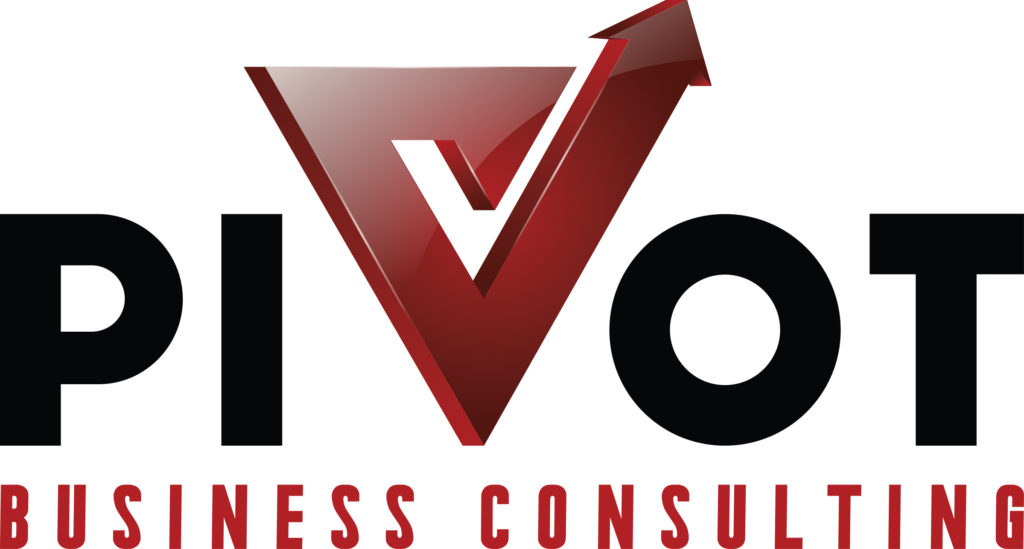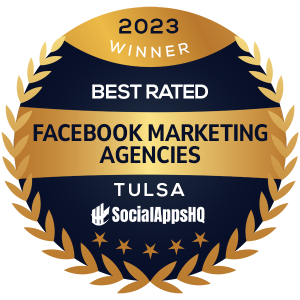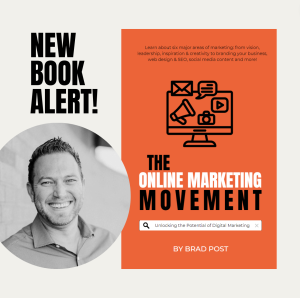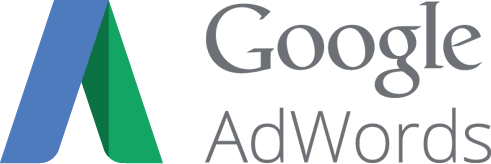Brad Post, Create the Movement, host
Isabella Johnston, Pivot Business Consulting, guest
Brad Post, Create the Movement, host: Welcome back to Create the Movement podcast. This is Brad Post, and I’m excited to be sitting with a friend of mine, Isabella Johnston. Isabella, how are you doing today?
Isabella Johnston, Pivot Business Consulting, guest: Hi, Brad. How are you?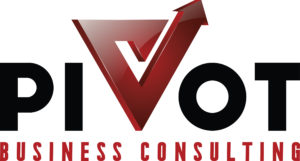
BP: Good, good. Isabella and I’ve been connected for several years now. Isabella’s actually brought quite a bit of value to our company. We met because we both were part of One Million Cups. Isabella, you’re in Orlando, correct?
IJ: Yes.
Isabella Johnston and Pivot Business Consulting
BP: She is part of Pivot Business Consulting. One of the main things that she’s really helped us with is bringing on interns. She has an interesting, amazing approach to getting interns for a company. Isabella, I wanted to you to share a little bit about what you do with Pivot Business Consulting.
IJ: Okay. Thank you for bringing me on your show, and also for the opportunity to meet your listeners. I really appreciate this. What Pivot does: I’m the owner and the founder and I work with entrepreneurs to help them with their people and their process problems. I work to bring innovative solutions that help them pivot so that they will be growing. I’m trying to keep it really, really simple. One of my coaches had said, “Keep it so simple that it’s not industry specific language. Just keep it really simple.”
BP: Tell us a little bit about your history and how you got started in this.
IJ: Originally, I was an English teacher, and I taught in the public school system. I went back to school and picked up an MBA. I started consulting by writing business clients on the side and working with a lot of entrepreneurs that were solopreneurs. Helping them to set up their offices by getting their systems documented. Helping them find out what’s the latest innovative technology. And that was, honestly, 12 years ago. No, 15 years ago. And working with them to get order and structure into their workplace.
So, once I did that, I have a blended background. It’s a blend of entrepreneurs – working with them. Also, I have a certificate in nonprofit management, aside from the MBA. There I worked to set up non-profits. Everything from a 501(c)(3) application all the way up to reorganizing them, or helping them with grants or a fundraising strategy.
The last area, because I have that education background, I have a blended background that’s of higher-ed and the public school sector. That is a combined twenty years of experience. Once I left the public school system, I went into working as an adjunct professor at many of the colleges that we have here in central Florida.
I learned when I started my own ‘official’ business, four years ago, with a different name, I started pulling in intern talent and I discovered I was really good at mentoring them. Not necessarily in their industry, or discipline, they were going into but helping them to get a foundation of skills in their area. I would bring experts in. I’m not an attorney, so I can’t necessarily mentor in that area of law. I’m not an accountant. But I know things in those areas because I’ve worked with those individuals and I’ve worked with them in their businesses helping to implement things.
So, I’ve learned a lot about the law. I learned a lot about accounting, forecasting sales – just because I’ve worked with different industries. So, it was real estate agents that I would work with, a tax consultant, lawyers. Set up a lot of lawyers offices. Worked with insurance companies and accountants, and it was through that process that I learned a lot about all of those areas and I would pull interns in to help in my own business. And then, people were asking me, “Hey, could you help me get some interns?” for whatever their business was.
That’s where, four years ago, I started working with a lot of startups to help them. What they always struggle with is talent and money. Those are the two things they need. What most businesses need – talent and money. They’re intertwined together. I can build an intern program for a business where the intern certainly benefits. They leave with a firm foundation of skills. But the business, I come from it as an organizational development, a process side of it, and look to see where they’re gaps. And then help them to bridge those gaps with some innovative solutions by using interns in a way that they typically don’t think.
Connecting Interns with Employers
BP: That’s great. Can you tell us about your approach to getting interns? I know you said you worked at a lot of colleges there locally, and you have a pretty good relationship with getting other universities connected. You’ve done a great job at getting us great, qualified applicants.
IJ: Thank you. I certainly am connected here, in my own town. But I can pull from schools anywhere across the country. There’s actually over 5000 schools nationally – whether it’s a four-year, or two-year school. Some of those are trade schools, also. So, I can pull from any of those. I’m set up with over 400 schools right now, and it’s a process. When somebody asks for students from a particular school I have to navigate through those channels. That’s what I do for my clients so they don’t have to. That’s something that they don’t want to have to mess with so I’ll navigate through those channels for them. I work with a client to create a job description.
I design an assessment so that that way the employer’s going to be able to see what this student can really do. The assessment is designed to look at five skills that are base skills: research, writing, creativity for problem-solving, time management (because they have a clock that ‘ticks’ when they start the assessment and they’ve got to get it back relatively quickly), and verbal skills. And the assessment is what I send over to an employer, or for me a client, and they’re going to be able to see, “Is this somebody that they want to work with?” Because there’s a lot of factors.
Somebody can look great on a piece of paper, and they can look great when they’re in the room with you, but we have biases when start talking with people. And we’ll think that this could be a good candidate because people will tell us what we want to hear. And that may not be because they want the job, they may not be the best fit. By delaying that process of meeting them in person we can actually, and you look at the assessment, get a better idea if this is the person that would be a good match for you skill-set wise. Then you’re able to see how they stacked up in those five areas of their research, or writing skills, how they handle time management, and how they can creatively solve a problem.
When they meet with you in person they’re able to tell you, “Oh, this is what I did. This is how I researched this. Theses are the sources that I found.” And be able to give a better indication if that’s going to be a person you want to work with.
On a scale of 1-10, I look at them as everybody’s a good candidate in my eyes from the beginning. If they’re an international student they may have some language barrier problems or culture. So, that’s a consideration. And all of these are factors that a business owner needs to take in and weigh to determine if this is going to be somebody that they have the time, honestly, the patience, sometimes, but the desire to work with this person. Because some people will view those as a negative side of working with somebody if they’re international. If they take this assessment and they can give it back in the time frame that they’re asked, that’s usually a pretty good indicator they’ve got more of that entrepreneurial spirit and they’re going to be pretty coachable. And I’m not expecting, when I work with my clients I tell them, “Don’t expect them to be experts.” Because what I’m asking them to do is learn an industry, learn your company, learn what it is that you sell really quickly. So, that’s the place where we start.
BP: Awesome. I know you’ve done a great job with us, and I really like the process that you take them through. It helps vet some of the people who aren’t too serious about being an intern. Because it is a process they go through and do the assessment and interview, and that type of stuff.
IJ: I have an onboarding package for my clients that can help them to bring that person into their company and into their culture more quickly. It’s something that can be customized to that particular business’s need. I also have a performance plan for the employer so that they can make sure that they’re aligning their needs with what the goals are of the student. That helps them, again, to have a more quality experience. Because a lot of employers will say that they don’t have time to manage them, or they don’t think that they can give them the work. But it starts with identifying what are those needs inside of the company first. So, that’s where I work with a client: “What do you think your needs are?” And we have more discussion. Maybe they need different types of students. So, maybe you might need, if it was you, you might need a video production student, but you might also need somebody that can do WordPress. You might also say you need somebody who can focus on the analytics of what the social [] is.
BP: What would you say, Isabella, one thing that’s really exciting to you in your business right now?
IJ: The most exciting thing is is that this whole end-to-end system, meaning it goes from recruiting to the exit interview and everything in between, is a process I’m having developed into a software. It’s called Intern Pursuits. We have a game with the same name to help pull students into software, to sign up. Think of it like Match.com. I’m going to match an employer, what their needs are, with a student, with what they say they’re looking for. Through that assessment and that interview process we’re able to give them a better fit.
BP: That’s awesome.
IJ: The software is something I’m really, really excited about.
The Best Business Advice Received
BP: Keep us posted on that. What would you say is the best business advice you’ve ever received?
IJ: You sent me that as a question and I went ‘oh.’ If I was to pick just one piece of advice – that was really hard. I came up with five sources and they’re all short. The first one comes from the Bible. It’s First Thessalonians 5:16-18 where it says: Rejoice always. Pray without ceasing. Give thanks in all circumstances for this is the will of God and Christ Jesus for you. That one – hands down. I don’t know how anybody can be an entrepreneur without praying. Because you have to be seeking wisdom and guidance from somebody, and hopefully, whoever it is that you pray to, for me it’s God. I’ll say, “Oh, goodness. Please, please help me with this.” Whatever ‘this’ is. So, I think the Bible’s the first source.
The second one is a friend of mine. He works in sales and financial strategies. He said, “I should be spending 60% of my time prospecting new leads and continuing to nurture and cultivate client relationships.” I think that that’s huge because many times we get caught up in the business itself and we forget there’s this balance that we have to keep in place. Because clients don’t always come knocking on your door quickly like how we want. It does require that we build a relationship with them. So, that prospecting – 60% was key. It changed everything.
The third one is when I was meeting with somebody yesterday, she said, “Keep your value proposition at the 5th-grade level.” Meaning don’t have any industry speak in there, don’t make it too long, keep it super, super simple. So, when I might call people my ‘talent,’ that doesn’t mean that everybody understands what talent is, but a 5th grader would understand what ‘people’ are. So, I went, “Okay. I like that.” Because I do like to keep things, honestly, very, very simple. Like five-year-old simple, really.
The fourth one is: what can I take off of your shoulders? Because I think that’s huge when somebody says, “What can I take off of your shoulders?” It means that they’re there to help and support and partner with you in some way.
And then, there’s a gentleman. His name is Tim Rickey; he has a book out there, too. He has three things: What more can I do for? What less can I do for you? And what can I change for you?
All of those pieces of advice are huge.
BP: I like that. Writing that down.
IJ: It’s all about the customer experience, right? And putting ourselves in the shoes of our customer. Making sure that they feel valued, and that it’s a real relationship, not just a one-off.
Isabella’s Favorite Books
BP: What books do you recommend to our listeners?
IJ: There’s a condensed version, but I always ask people that are working with me to read ‘E-myth Revisited’ by Michael Gerber because that’s all about processes and systems. And how that’s so important. Even if somebody is a solopreneur if you don’t have your process documented step-by-step. Picking up the mail, for example. What time should the mail be picked up? Do you need a key to pick it up? Are you going to have to have ID? All of these things. Because if you bring somebody in at any point in time and you ask them to do something for you. If you have a documented system it makes it so much faster because it starts creating a training program, essentially.
‘Good to Great.’ I think Jim Collins’ book is really important because it’s all about treating people with respect and building a strong team. Recognizing strengths and challenges and being able to be open and coachable. I follow a servant leadership model. I think that really makes people more likely to invest with you as employees, and even your clients.
There’s a third book, and I’ve just been given this book, and I’m starting to read it. This one is more of something for people that are on the other side that are looking for jobs, specifically students. ‘This Is Who We Hire’ and it’s by Alex Groenendyk. Alex and I have been partnering up together. He has this book, it’s in UCF which is the second largest university in the United States. It is required reading for over 8000 students there in the business school. Now, it’s moved into the psychology program, too. It really helps students to identify how they need to prepare themselves, not just their personal brand, but how they need to prepare themselves to be able to get a job. And how the other side, we as employers, look at them.
Alex has mentioned my company in his book, but he’s also invited me to help write the next version, the next edition, with the internship program section. So, I think that’s huge, but I’m reading his book and I’m really finding it very, very insightful. And it’s a good read for the employer side, but it’s definitely a good read for those that are looking for employment.
Recommended Podcasts
BP: That’s awesome. We talked a little bit about this before the show, but what are some of the podcasts that you would recommend to our listeners?
IJ: I like the ones that have to marketing and social which is a lot of what you do, also. So, I’ve been listening to those but also reading some of their books, too. I was an English major so I like words. But the other side of it, the listening, makes it so much easier than watching a video.
I listen to ‘TED Talks’ so I can stay up to date whatever the latest trends are, or innovations that are out there. They’re also very encouraging and inspiring. I listen to a gentleman, his name is Mike Dillard. He has something that’s set up to help you to make your services and your website be more of an online store. He has a system that helps people if they don’t know how to do it, it will walk them through a step-by-step process. I’ve been listening to a lot of his information.
Alan Weiss, he is an organizational development consultant, too. Which means like a ‘business doctor.’ Comes and looks at a business; looks to see where the gaps are, like myself. His is really insightful. He works like a 20-hour workweek, but his value of what he brings to his clients is huge. He can charge $5000 an hour. I’m amazed at that. He teaches out of Harvard. He’s taught at the best top-tier schools that there are.
I signed up for yours, and I’ve listened to a couple of yours this morning. I found them really interesting because they have that whole entrepreneurial spin and they’re very real. Where people are sharing what that journey has been like – the ups, the downs. The openness and willingness to be sharing about failing and that it’s not a bad thing.
And if we look at things that are in our social feed we’ll see how many times Einstein failed. The history of people who have failed, but they don’t give up. I teach Sunday school. I teach three-year-olds, but I also worked in the baby room. When we watch children if they fall they get back up. They aren’t looking around, “Did anybody see me?”
The other one is ‘E-Myth.’ I listen to that one, also.
BP: Awesome. Isabella, thank you so much for being on our podcast today.
IJ: I appreciate it. It was really a joy and a pleasure. Thank you, Brad.
